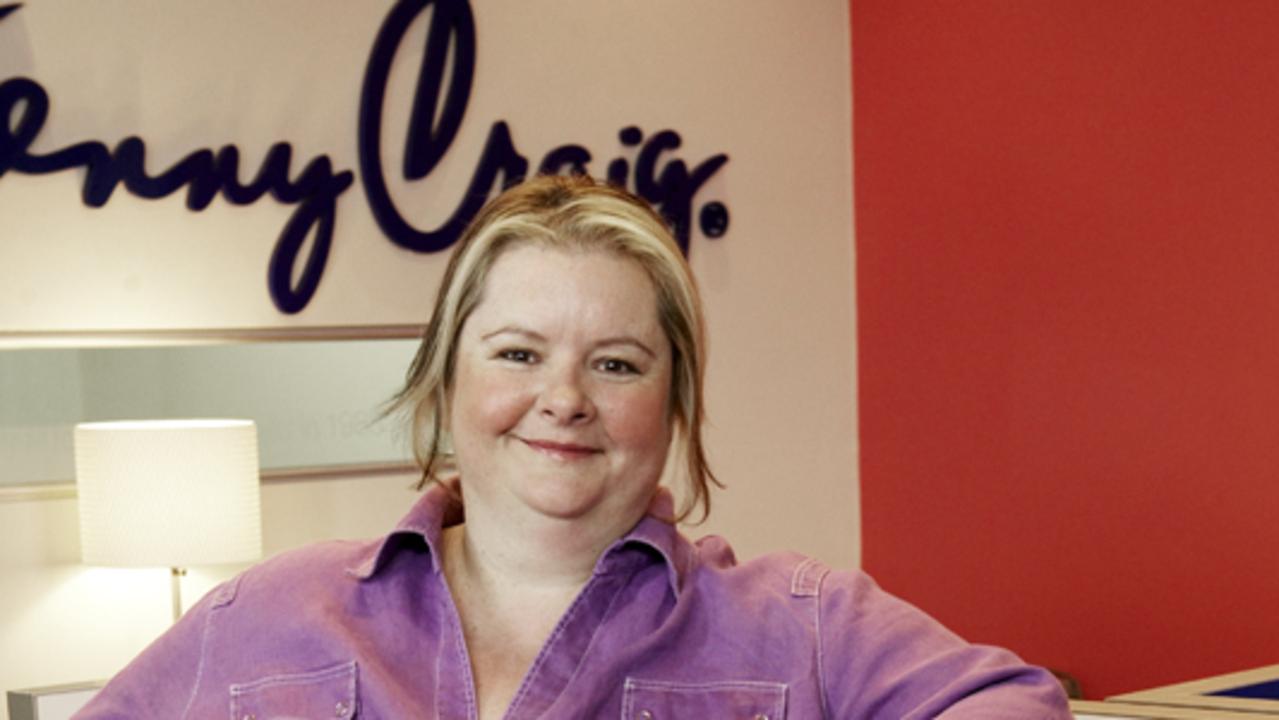Inside Jenny Craig’s recent controversies as weight loss icon’s collapse stuns the globe
Jenny Craig’s collapse has stunned the globe – but it comes after the company was rocked by a string of controversies in recent years.
News of weight loss icon Jenny Craig’s collapse has stunned clients across the globe – but the company’s closure comes after it was rocked by a string of controversies in recent years — including a scandal that cost it $15 million.
On Thursday, news broke that the firm will reportedly close down its North American operations “due to its inability to secure additional financing”, according to a leaked staff email seen by NBC News.
Days earlier, it had emerged that Jenny Craig had amassed around $US250 million ($A374 million) in debt, was desperately seeking a buyer and was even weighing up filing for bankruptcy if a purchaser could not be found.
Now, it seems Jenny Craig is in dire straits – and attention is turning to the company’s recent high-profile troubles.
From Melbourne to the world
Jenny Craig was founded in 1983 in Melbourne by American husband-and-wife duo Jenny and Sidney Craig, who expanded the weight loss program into the US in 1985.
Over the years it has attracted millions of clients worldwide with specially-designed menus to help customers shed the kilos.
The weight loss and nutrition juggernaut was bought by H.I.G Capital in 2019 and currently employs around 1000 people, with around 500 company-owned and franchised stores in the United States and Canada and 600 centres across the globe, including in Australia.

Over its four-decade history, Jenny Craig was known to pay celebrities hundreds of thousands of dollars to lose weight and later be publicised as a brand success story, with Rebel Wilson, Magda Szubanski and Mel B all fronting Jenny Craig campaigns in Australia.
Mariah Carey and the late actor Kirstie Alley did the same in the US.
Jenny Craig’s controversies
In 2018, Jenny Craig was forced to pay almost $38,000 in penalties for allegedly misleading Australian consumers on its ‘lose 10kg for $10’ advertisement.
That year, the Australian Competition and Consumer Commission (ACCC) issued three infringement notices for alleged false or misleading representations in breach of the Australian Consumer Law.
From December 2017 to February 2018, Jenny Craig promoted in television advertisements that people could lose up to 10kg of weight for a $10 program fee, without adequately disclosing customers also had to purchase food at an additional cost, according to the Australian consumer watchdog.
In a statement, the ACCC said they were “concerned” that the advertisements “misled consumers into thinking they could participate in a Jenny Craig program and lose 10kg for $10”.
“In reality customers would have had to spend far more than that,” ACCC commissioner Sarah Court said at the time.

Jenny Craig also failed to disclose that a person featured in an online testimonial video for its services was a Jenny Craig employee.
In 2013, US comedian Mara Shapshay announced plans to sue Jenny Craig after alleging weight loss products had led to a miscarriage and left her with 1000 gallstones.
Jenny Craig strenuously denied the allegations at the time, with a spokesperson telling the Daily Mail that “while Jenny Craig is sympathetic to any person suffering from medical conditions, it is irresponsible to claim that the Jenny Craig program was the cause of these issues”.
“Jenny Craig’s program, whose clinical trial was published in JAMA in 2011, is designed by registered dietitians in close consultation with a medical advisory board and reflects the guidelines of major health organisations.
“Clients following the Jenny Craig program, on average, lose 1-2 pounds (0.4-0.9kg) per week. This is a safe rate of weight loss that results from a nutritionally-balanced menu that is moderately low in fat. This lawsuit is a clear attempt to incite the public and seek a quick settlement.”
Ms Shapshay later confirmed that she had dropped the case, “opting instead to talk about the dangers of the dieting industry” via her blog.

Two years earlier, in 2011, Aussie legend Magda Szubanski famously split with Jenny Craig after she regained the 36 kilos she initially lost while on the program, citing “calorie amnesia” as the reason for her weight gain.
Three years later, she re-signed with the brand – for a lucrative figure. The new deal was criticised by Triple M Sydney’s The Grill Team, with Gus Worland, Mark Geyer and Matty Johns hitting out at the company for “rewarding people for being fat and getting fat again”.
And in 1994, Jenny Craig settled a class action involving 360,000 clients from Orange County, California, after it was alleged that products could cause gall bladder disease.
According to the LA Times, the firm agreed to a $US10 million ($A15,000,000) payout and gave away $US36 million ($A54,000,000) in merchandise but admitted no wrongdoing.






